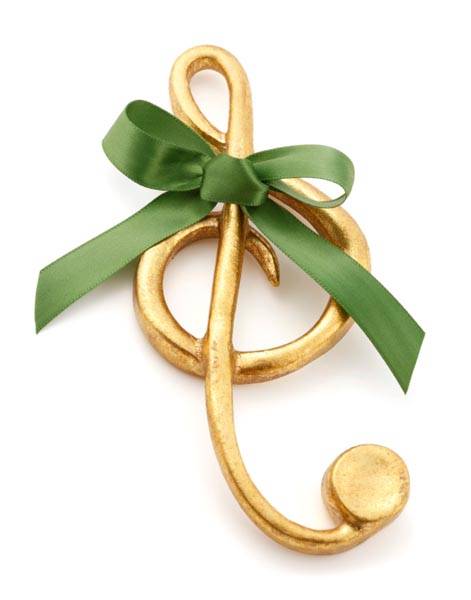 When the weather outside is this frightful, we’re thankful it’s acceptable to listen to Christmas music 24 hours a day – at least until December 26th. Luckily, if you’re already tired of the old standbys, many stars these days – from the Killers to Glee to Michael Buble – are getting into the spirit by releasing holiday albums for your listening pleasure.
When the weather outside is this frightful, we’re thankful it’s acceptable to listen to Christmas music 24 hours a day – at least until December 26th. Luckily, if you’re already tired of the old standbys, many stars these days – from the Killers to Glee to Michael Buble – are getting into the spirit by releasing holiday albums for your listening pleasure.
But before hitting the slopes or heading to shop, don’t forget to take a few moments to take special care with your instrument when the mercury dips to outrageous temperatures. Check out these tips for winter instrument care :
For flutes:
You are one of the lucky ones! The cold does not affect the flute as much as it does many other instruments. Your most important job is to blow warm air into your instrument to warm it up before you play, mostly to help intonation. Also, make sure to clean out your instrument when you finish playing. If moisture remains inside your instrument, it could freeze and create frost on your pads and keys, which will cause pads to stick and could cause permanent (and expensive!) damage to pads, springs, and screws.
For clarinets:
In very cold weather, corks can freeze and it will be very difficult to put your clarinet together. Never force your clarinet together, as the corks will tear and then your instrument will not be playable. Use cork grease and then put your instrument together. Also, be sure to clean out your instrument when you’re done. Similar to the flute, if moisture remains inside your instrument, it could freeze and create frost on your pads and keys, and could cause permanent damage. If your clarinet is wooden, you must warm it up to about body temperature before you blow warm air into it. The wood can crack, and this cannot be repaired. Repairmen like to “joke” that once wooden clarinets, oboe, or piccolos crack, they essentially become firewood.
For saxophones:
Like flutes, you do not have much to worry about. Just be sure to remove moisture from the inside of your instrument when you are done playing so nothing freezes.
For trumpets and trombones:
Cold, dry air makes valves sticky and difficult to move up and down. Make sure you use plenty of valve oil and don’t force the valves to move. If they are really stuck, let them warm up. The same applies for trombone slides.
So let it snow, let it snow… but don’t forget about your instrument! A private music teacher can help you learn to take excellent care of your instrument and teach you to play to the best of your ability. TakeLessons teachers are prescreened and qualified, so you can trust you’ll have an excellent learning experience. Find a music teacher near you today!
You might also like…
– How to Clean Your Guitar: 4 Easy Steps
– Give Your Guitar Strings Some Love Today
Suzy S.
